As the largest agricultural production center of Vietnam, the Mekong Delta carries out the mission of ensuring national food security and export, creating jobs for 65% of the region's population. This place has contributed a large proportion to the country's agricultural GDP: accounting for 31.37% of the agricultural GDP, contributing up to 50% of rice output.
According to the orientation of Vietnam's agricultural development, the development goal of the Mekong Delta region by 2025 is to achieve an agricultural GDP growth rate of over 3%/year; average income per capita in rural areas increases at least 2 times compared to 2018; the rate of farmers trained in agricultural profession is over 30%; the rate of output of cultivated and aquaculture products certified for sustainable production is over 20%; greenhouse gas emission intensity is reduced according to commitments.
Towards that goal, since August 2022, the National Agricultural Extension Center and Bayer have signed a Memorandum of Understanding on the establishment of the ForwardFarm model. In which, the two sides agreed to cooperate in developing and implementing initiatives to transform rice production to improve rice productivity and quality. Not only attracting international export markets, the orientation also promotes sustainable agricultural development, responding to the impacts of climate change.
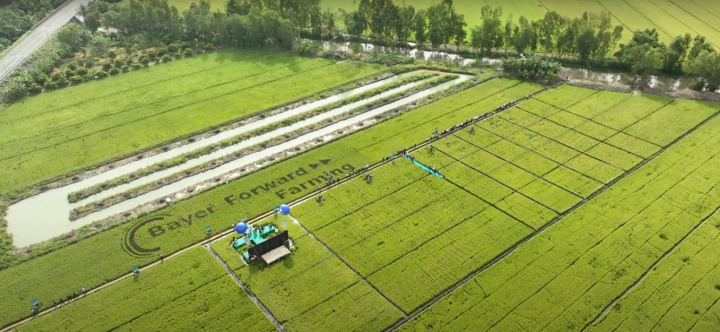
The first ForwardFarm model in Southeast Asia was deployed in Thoi Lai district, Can Tho city.
By August 2023, when qualified, the first ForwardFarm model in Southeast Asia will be deployed in Thoi Lai district, Can Tho city. The program has the cooperation and participation of parties such as: farmers, agricultural experts, technology solution providers, many partners and individuals in the rice production value chain, customers and consumers.
The project will be implemented over three years with the aim of improving farmers' income, contributing to ensuring food security, while protecting natural resources and the environment, enhancing solutions to reduce greenhouse gas emissions and adapt to climate change, and will contribute to realizing the vision of the Ministry of Agriculture and Rural Development in the strategy of developing one million hectares of sustainable, high-quality rice production for export and promoting green growth in the Mekong Delta rice growing region.
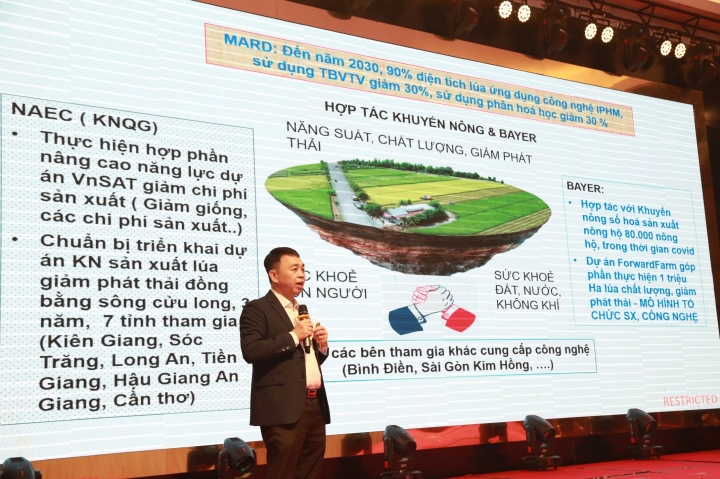
Mr. Nguyen Viet Khoa, Head of Training and Coaching Department, National Agricultural Extension Center shared at the launching event of the ForwardFarming project.
Mr. Nguyen Viet Khoa, Head of Training and Coaching Department, National Agricultural Extension Center shared: This is a global idea of Bayer, this project is very meaningful in contributing to the project of 1 million hectares of rice of the National Agricultural Extension Center. The ForwardFarming project focuses on the role of farmers and cooperatives, supporting cooperatives to improve their capacity to effectively implement the project's goals.
“Visible” achievements of the ForwardFarming project
The ForwardFarm model is a global initiative by Bayer to support sustainable agricultural development, based on three main contents: Solutions for crops, Protecting the environment and people; Collaborating for mutual development. Based on this model, farmers can access agricultural solutions suitable to local characteristics, for the Mekong Delta region, it is rice production.
Farmers practice responsible farming, protect natural resources and the environment, and become pioneers in sustainable agricultural production. ForwardFarm also promotes knowledge sharing on modern sustainable agriculture through pilot models on fields and farms in collaboration with farmers around the world.
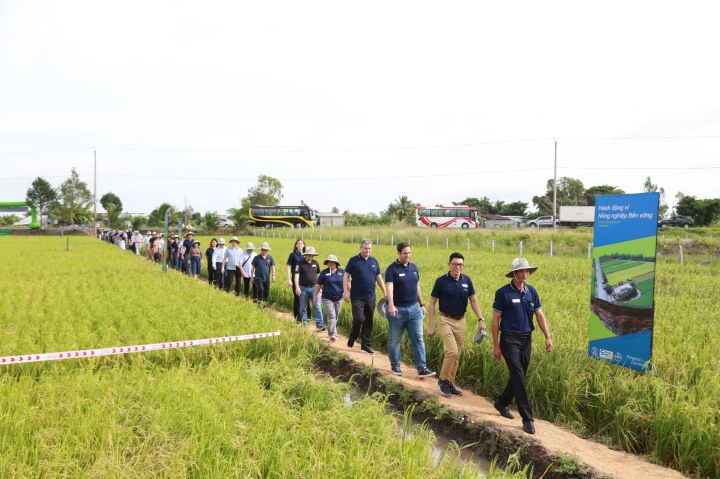
Farmer Do Tri Hung excitedly led the delegation to visit the ForwardFarm model that he has applied on 1.5 hectares of his rice field.
Mr. Do Tri Hung, a farmer participating in the ForwardFarming project to deploy sustainable farming knowledge on a 1.5 hectare rice field in Dong Thuan commune, Thoi Lai, Can Tho, shared: thanks to applying the ForwardFarm sustainable farming model, he has saved production costs while still ensuring the productivity and quality of harvested rice.
Specifically, compared to the old farming method of sowing about 20-25kg of rice seeds per hectare, fertilizing with 50kg of fertilizer, and spraying 3-4 times of pesticides, when applying the ForwardFarm farming model, the amount of seeds is only 12kg, the sparse sowing of rice limits pests and diseases, avoids lodging, and the amount of fertilizer and pesticides used is also less. Compared to traditional rice sowing, the ForwardFarm farming model helps farmers save 30-40% of production costs.
Mr. Chu Viet Ha, Director of Crop Science of Bayer Vietnam Company said: There are many factors that contribute to the success of the ForwardFarming project, but in general there are 3 main factors. First, is the shared vision towards developing sustainable agriculture of the parties, specifically the Ministry of Agriculture and the National Agricultural Extension Center and domestic and foreign private enterprises.
The second factor is the cooperation of units, companies, and enterprises in the agricultural value chain, specifically here is the coordination of Bayer, Binh Dien Company and Saigon Kim Hong Company, through which we share experiences in cooperation activities with farmers.
The third factor is the agricultural extension system. Through the agricultural extension system, in a very short time, we have trained over 2,000 farmers to learn from this model and then apply it to their fields. In the long term, the participation of the grassroots agricultural extension system, also known as the community agricultural extension system, will be an important factor for us to replicate this model, achieving greater effectiveness throughout the Mekong Delta region.
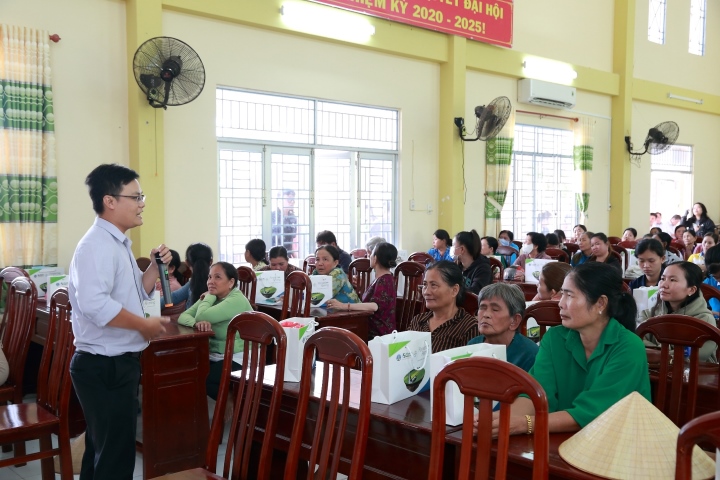
The ForwardFarming project conducts training courses for female farmers on proactive family planning, pregnancy nutrition, and care for common dermatological problems.
In addition, the project also pays special attention to the role of women in agriculture, demonstrated through training topics specifically for more than 500 female farmers such as: proactive family planning methods, pregnancy nutrition, care of common dermatological problems...
Bao Anh
Source


![[Photo] Binh Thuan organizes many special festivals on the occasion of April 30 and May 1](https://vphoto.vietnam.vn/thumb/1200x675/vietnam/resource/IMAGE/2025/5/1/5180af1d979642468ef6a3a9755d8d51)

![[Photo] Ha Giang: Many key projects under construction during the holiday season](https://vphoto.vietnam.vn/thumb/1200x675/vietnam/resource/IMAGE/2025/5/1/8b8d87a9bd9b4d279bf5c1f71c030dec)



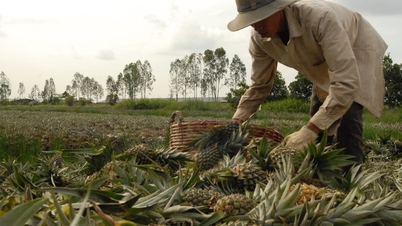

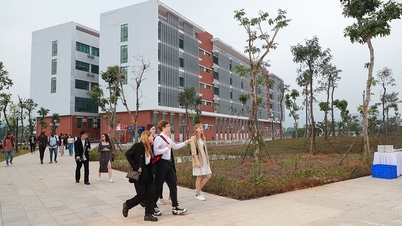


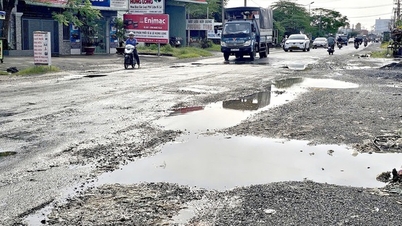

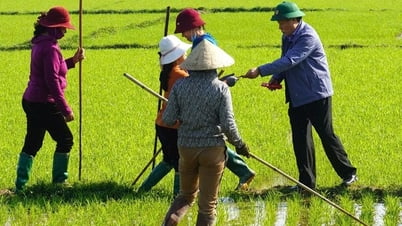



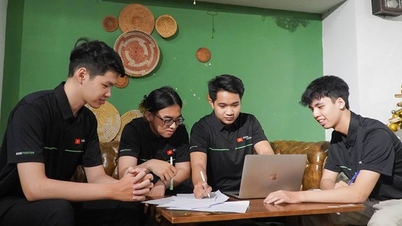











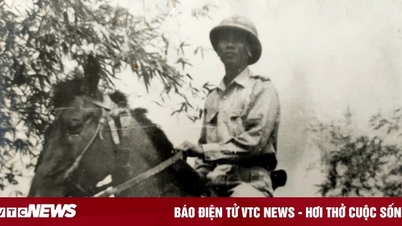
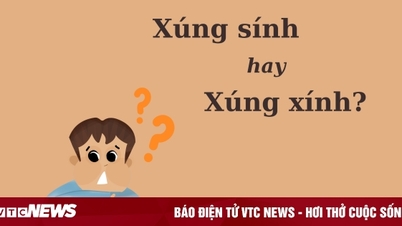




![[Photo] Feast your eyes on images of parades and marching groups seen from above](https://vphoto.vietnam.vn/thumb/1200x675/vietnam/resource/IMAGE/2025/4/30/3525302266124e69819126aa93c41092)

















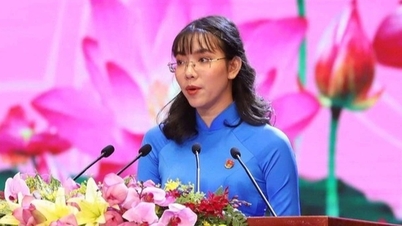















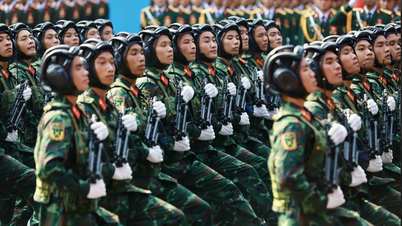




























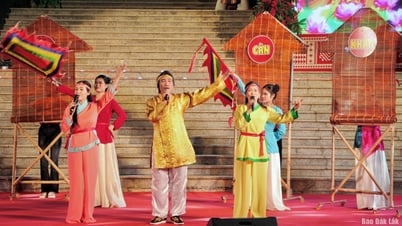

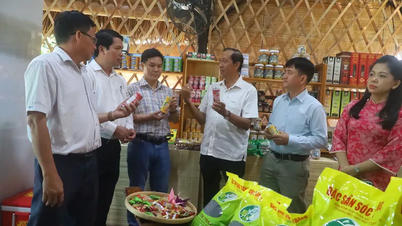

Comment (0)